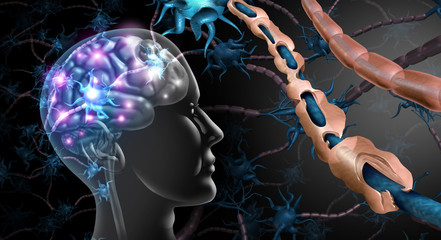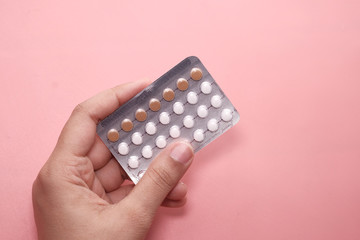
Study Finds Benefits of Probiotics for Depression
It’s well-known that probiotics, available from both fermented foods and supplements, support digestion and gut function. Can probiotics also improve mental health?
A new study suggests there are benefits of probiotics for people dealing with depression. How so? A little known fact is that certain gut bacteria are linked to depression, while others are associated with improved moods, neuron activity and cognitive function.
This makes sense, considering that probiotics in the gut can support neurotransmitter function. Neurotransmitters are the brain’s messengers that control one’s mood, energy, appetite and more.
Study Findings: Probiotics for Depression
A 2022 randomized, controlled trial published in the journal Translational Psychiatry found evidence that probiotics can function as a promising new treatment approach for major depressive disorder (MDD).
Probiotics are defined as “microorganisms introduced into the body for their beneficial qualities.” They’re known to have an effect on the microbiota-gut-brain (MGB) axis, also called the “gut-brain connection.” This gives probiotics the ability to impact physiological and behavioral functions that are associated with depression.
This particular study sought out to determine whether short-term, high-dose probiotic supplementation could reduce depressive symptoms by causing gut microbial and neural changes in depressed patients. Patients who were struggling with depressive episodes took either a multi-strain probiotic supplement or a placebo for one month (31 days) in addition to completing their usual treatments.
Participants completed an assessment of their symptoms before and after the probiotic intervention using the Hamilton Depression Rating Scale. Microbiome profiling and neuroimaging scans were also used to detect changes in the participants’ gut-brain axis.
Among those who took the probiotics, it was found that microbial diversity and abundance of the probiotic strain called Lactobacillus were both increased. These increases were associated with decreased depressive symptoms.
Another finding was that activation of certain neurons associated with depression was significantly decreased after the probiotic intervention.
In conclusion, data from the study indicate that probiotics taken in addition to other treatments can help decrease depressive symptoms due to changing gut microbiota and brain activities. Researchers involved in the study consider probiotic treatments to be an “accessible, pragmatic, and non-stigmatizing” approach to supporting mental health.
Other Probiotics Benefits
So what probiotic is good for depression?
The study mentioned above found that Lactobacillus seems to be supportive of mental health. Bacillus coagulans has been shown in other studies to improve depressive symptoms in patients with a combined diagnosis of MDD and irritable bowel syndrome.
On the other hand, increased abundance of Ruminococcus gauvreauii and decreased abundance of Bacteroides are thought to increase one’s risk for depression.
Can probiotics increase serotonin?
Some studies, and one systematic review, have found that certain probiotics present in the gastrointestinal tract may improve central nervous system symptoms associated with depression by increasing production of free tryptophan, which is then converted to serotonin. So yes, it’s possible that a healthy gut helps to boost serotonin production, which improves someone’s mood.
What other benefits do probiotics have?
In addition to supporting mental health, probiotics can help:
- Support gut lining integrity, which is important for immune health and immune defenses.
- Help with absorption of essential nutrients and synthesis of some vitamins and proteins.
- Promote healthy digestion, including by limiting occasional diarrhea, gas and bloating.
- Support a healthy body weight.
Other Natural Ways to Combat Depression
Aside from eating a healthy diet that contains probiotics and/or supplementing with probiotics, other natural depression remedies include:
- Exercising regularly, which releases “feel good” endorphins.
- Getting enough sleep (seven to nine hours per night) and sticking to a regular sleep-wake schedule.
- Exposing yourself to nature and sunlight during the day, which can boost your energy and help regulate your circadian rhythm.
- Therapy, such as cognitive behavioral therapy that focuses on changing negative thought patterns.
- Eating more fruits and vegetables, omega-3 foods, healthy fats like nuts and olive oil, and quality proteins.
- Limiting intake of processed foods, such as sugary drinks, sweetened desserts, fried foods, processed meats and refined grains.
- Supplementing with vitamin D3, B vitamins and possibly herbs, such as St. John’s wort.
- Potentially taking medications for depression, such as selective serotonin-reuptake inhibitors (SSRIs), which include drugs like Celexa, Lexapro, Zoloft, Prozac and Paxil.
Conclusion
- A new study found that probiotic supplementation for one month had positive effects on gut and brain functions — and therefore helped reduce depressive symptoms.
- Is Lactobacillus good for depression? Yes, it appears that higher levels of Lactobacillus and Bacillus coagulans can help support mental health.
- For the best results, probiotic supplements should be combined with other depression treatments, such as therapy, a healthy diet, exercise, sunlight exposure and a regular sleep schedule.
—---------------------------------------------------------------------
If you would like to learn more about mindfulness and mental health, check out the following courses:
-
Improving Mental and Behavioral Health Care with Digital Technology
-
Mindfulness in Nursing: Decreasing Burnout, Improving Outcomes
Our courses are available for purchase by the individual or facility. For individuals, register with us to create your username and password, click on the course title of interest and then click the Buy Now button. For a complete listing of all our online continuing education courses click here.
For facilities or organizations that would like to purchase education for their staff, email sales@pedagogyeducation.com let us know the course(s) of interest and how many staff members you need to provide education for, and we will be happy to send you a price quote!
